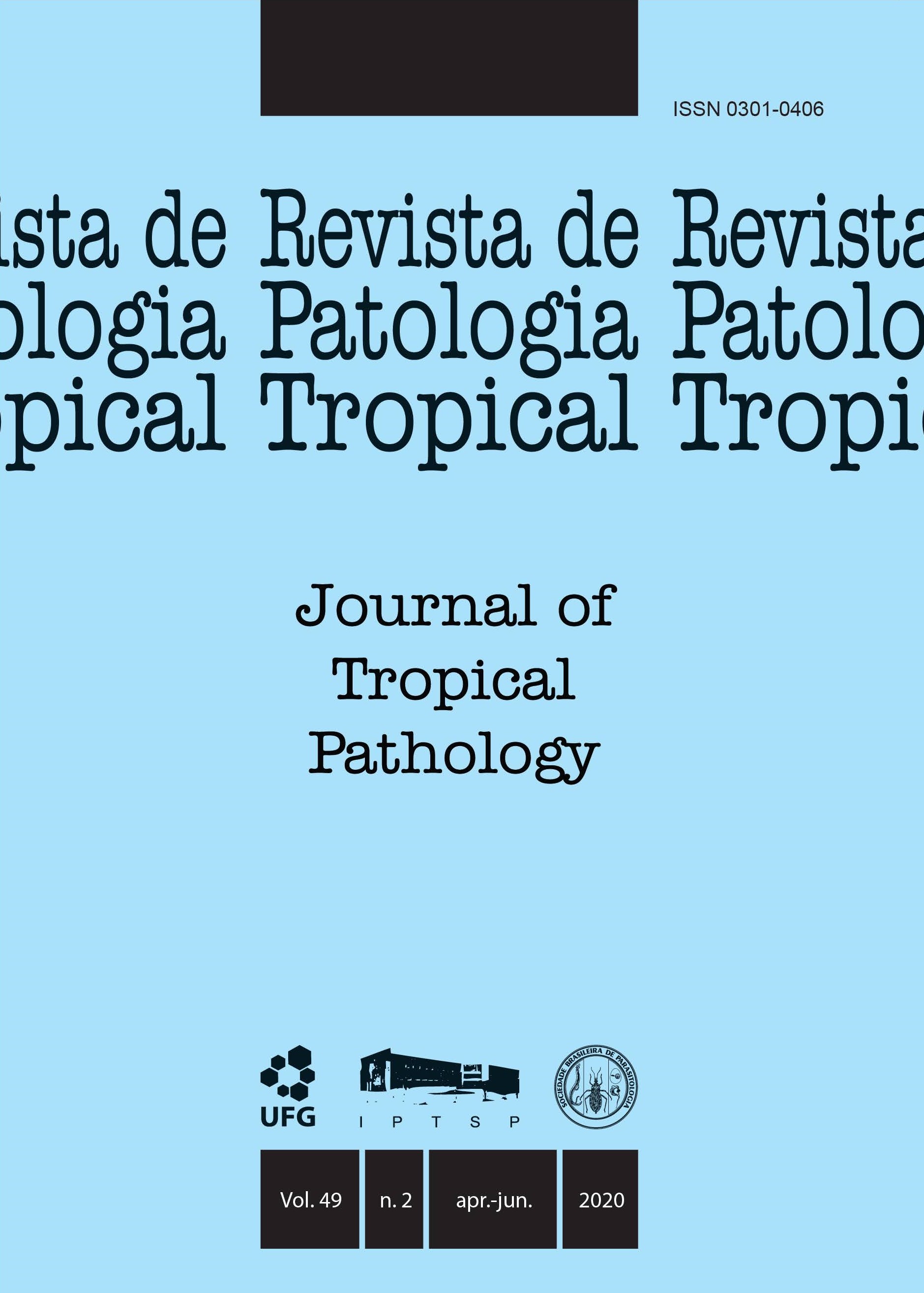ACQUIRED ANTIRETROVIRAL DRUG RESISTANCE MUTATIONS UPON TREATMENT FAILURE IN HIV-1 INFECTED PEDIATRIC PATIENTS IN CENTRAL BRAZIL
DOI:
https://doi.org/10.5216/rpt.v49i2.62639Abstract
Antiretroviral drug-resistance mutations compromise the successful treatment of children and adolescents infected with human immunodeficiency virus type 1 (HIV-1). We describe the clinical, virological, and immunological follow-up of a cohort of children and adolescents perinatally infected with HIV-1 treated at Hospital Estadual de Doenças Tropicais Dr. Anuar Auad – HDT, in Central Brazil, after therapeutic failure related to drug resistance mutations.
We analyzed the results of the genotypic test (protease codons 1–99 and reverse transcriptase codons 1–325) performed from 2003 to 2015. The ARV susceptibility profile was analyzed according to Stanford HIV drug resistance database. A total of 65 patients (median age of 10 years; range, 18 m–18 y) with therapeutic failure (after a median of 55 months of follow up; range, 9 m–13 y) and plasma levels of HIV-1 RNA greater than 1,000 copies/mL which were included and demonstrated mutations in: nucleoside reverse transcriptase inhibitors (NRTIs), 98.5%; non nucleoside reverse transcriptase inhibitors (NNRTIs), 75.4%; and protease inhibitors (PI), 44.6%. The most frequent NRTI mutations were found in codon T215 (83.1%) with a predominance of T215Y (56.9%), followed by M184V (69.3%). In the NNRTI class, mutations K103N (36.9%) and 190A (23.1%) were predominant, and, in the protease, mutations 54VL (35.4%) and 82ASTL (32.3%) were found in approximately the same proportion, with a predominance of the M54V mutation. These results demonstrate the high levels of resistance to different classes of antiretrovirals in HIV-infected children and adolescents and the importance of genotypic resistance tests in this population.
KEY WORDS: HIV; drug resistance; genotypes; child; adolescent.
Downloads
Downloads
Published
How to Cite
Issue
Section
License
The manuscript submission must be accompanied by a letter signed by all authors stating the full name and email address, confirming that the material has not been published or is under consideration for publication elsewhere, and agreeing to transfer copyright in all media and formats for Journal of Tropical Pathology. The authors will not be paid for published articles. They are solely responsible for the content of those articles, even if the Editor holds the right to adjust them to the norms of the journal.
The reviewers will not be paid for the peer review process.

